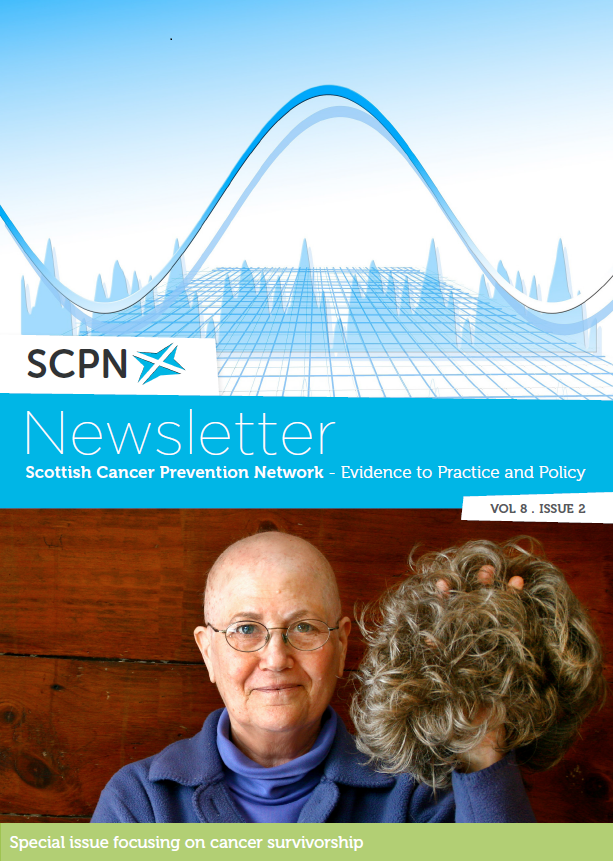
Have you seen these papers?

02 May 17 |
ESPEN guidelines on nutrition in cancer patients
Cancer patients frequently suffer from malnutrition and metabolic derangements whether due to their tumour itself or the effects of anticancer therapies. Malnutrition is associated with poorer prognosis [1, 2] as it can limit the response to anticancer therapies. In addition, metabolic derangements like obesity and insulin resistance are associated with increased risks of cancer recurrence [3, 4].
The European Society for Clinical Nutrition and Metabolism (ESPEN) and the European Partnership for Action Against Cancer (EPAAC) have developed evidence-based guidelines [5] based on current best evidence and expert opinion to improve early detection and treatment of malnutrition and metabolic derangements in cancer patients and cancer survivors; to provide guidance to health care workers and patients on the most appropriate and effective management of nutritional and metabolic problems in cancer patients; and, by this, to lower the incidence and impact of malnutrition and metabolic derangements in cancer patients and survivors.
Two guidelines were specifically aimed at cancer survivors:
- C5-1 Engage in regular physical activity
- C5-2 Maintain a healthy weight and lifestyle, which includes being physically active and a diet based on vegetables, fruits, wholegrains and low in saturated fat, red meat and alcohol.
Recent reviews [6, 7] indicate obesity and metabolic syndrome may be independent risk factors for cancer recurrence and reduced survival in breast and gastric cancer cases. In addition cancer survivors are significantly more likely to develop second primary cancers and chronic diseases e.g. cardiovascular disease, diabetes and osteoporosis. It is perhaps even more important then that this group of patients are nutritionally assessed and supported to make healthy food choices and be physically active.
References
- Andreyev HJ, Norman AR, Oates J, Cunningham D. Why do patients with weight loss have a worse outcome when undergoing chemotherapy for gastrointestinal malignancies? Eur J Cancer 1998;34:503e9. Available at: https://www.ncbi.nlm.nih.gov/pubmed/9713300
- Pressoir M, Desne S, Berchery D, Rossignol G, Poiree B, Meslier M, et al. Prevalence, risk factors and clinical implications of malnutrition in French comprehensive cancer centres. Br J Cancer 2010;102:966e71. Available at: https://www.ncbi.nlm.nih.gov/pmc/articles/PMC2844030/
- Oh SW, Park CY, Lee ES, Yoon YS, Lee ES, Park SS, et al. Adipokines, insulin resistance, metabolic syndrome, and breast cancer recurrence: a cohort study. Breast Cancer Res 2011;13:R34. Available at: https://www.ncbi.nlm.nih.gov/pubmed/21450081
- Flood A, Mai V, Pfeiffer R, Kahle L, Remaley AT, Lanza E, et al. Elevated serum concentrations of insulin and glucose increase risk of recurrent colorectal adenomas. Gastroenterology 2007;133:1423e9. Available at: https://www.ncbi.nlm.nih.gov/pubmed/17904132
- Arends J, et al., ESPEN guidelines on nutrition in cancer patients, Clinical Nutrition (2016) http://dx.doi.org/10.1016/j.clnu.2016.07.015
- Azrad M, Demark-Wahnefried W. The association between adiposity and breast cancer recurrence and survival: a review of the recent literature. Curr Nutr Rep 2014;3(1):9e15. Available at:
https://www.ncbi.nlm.nih.gov/pubmed/24533234 - Kim EH, Lee H, Chung H, Park JC, Shin SK, Lee SK, et al. Impact of metabolic syndrome on oncologic outcome after radical gastrectomy for gastric cancer. Clin Res Hepatol Gastroenterol 2014;38:372e8. Available at: https://www.ncbi.nlm.nih.gov/pubmed/24485596
This article was originally published in The SCPN Newsletter Volume 8, Issue 2. Read the digital newsletter below using Issuu, or feel free to download the PDF.
View the PDF

The SCPN Newsletter: Volume 8, Issue 2
In this issue we have a section focusing on cancer survivorship as well as our regular features - examples of good practice, public health initiatives, recipes and interesting studies which contribute to the body of evidence on cancer prevention.